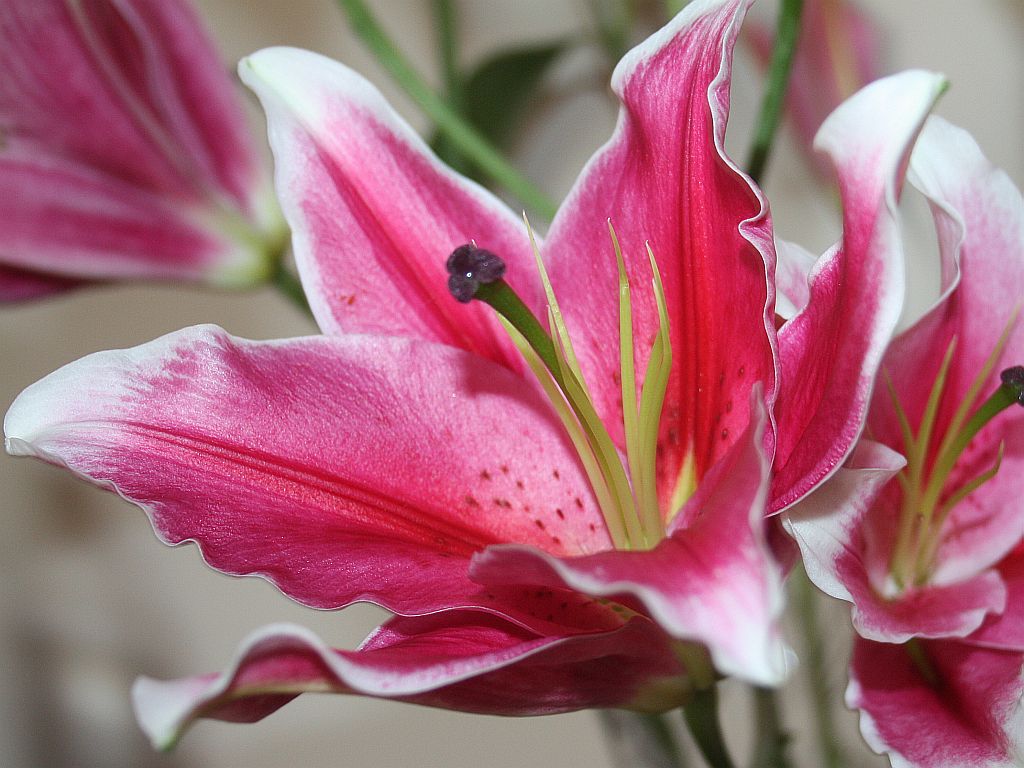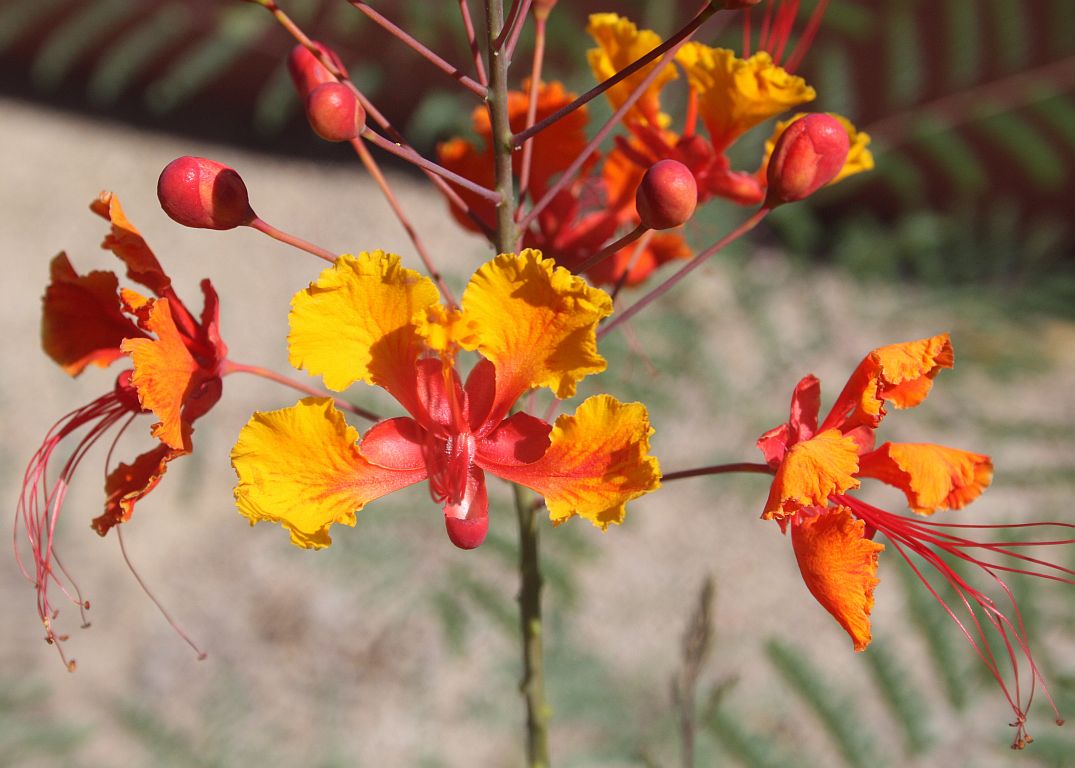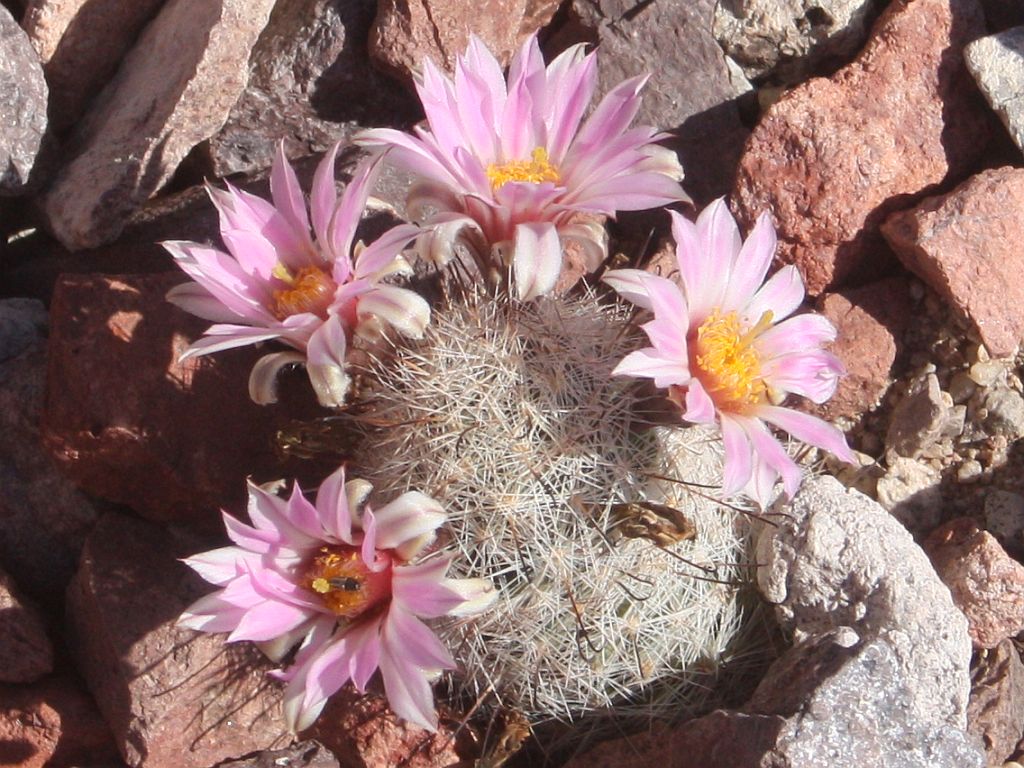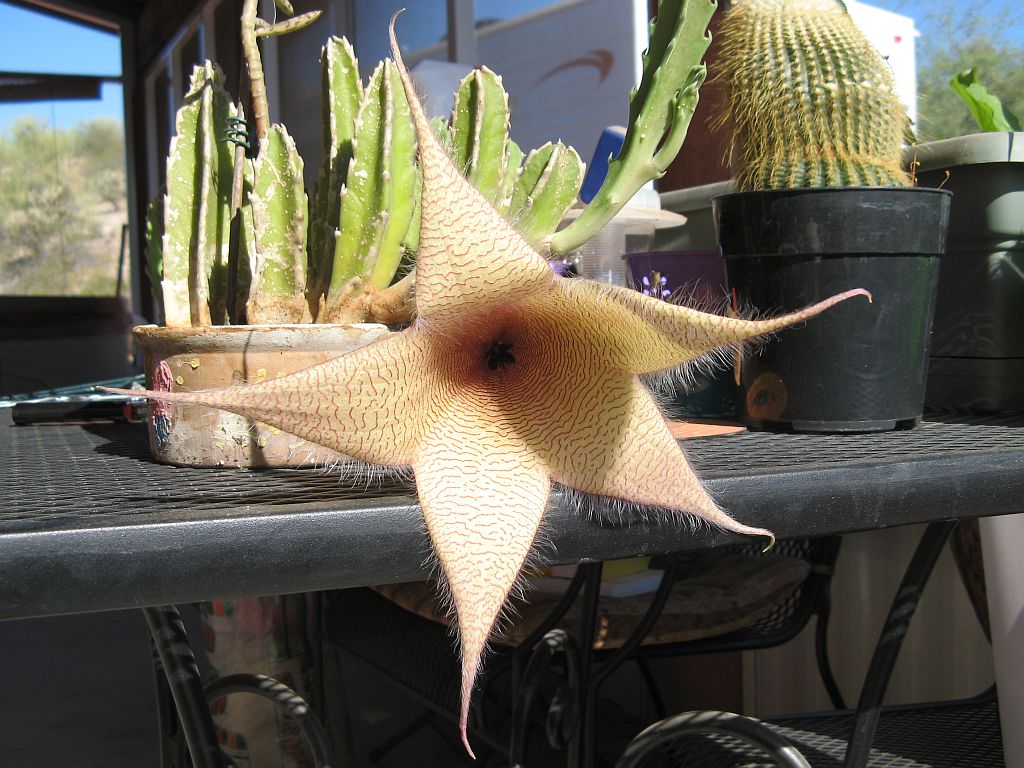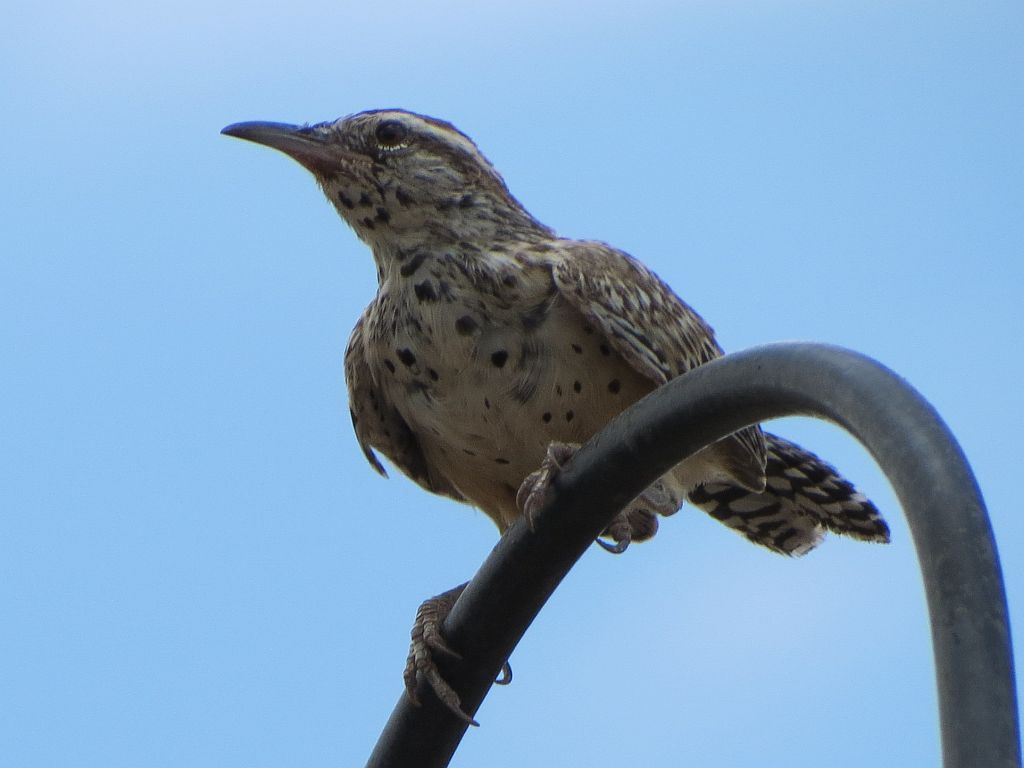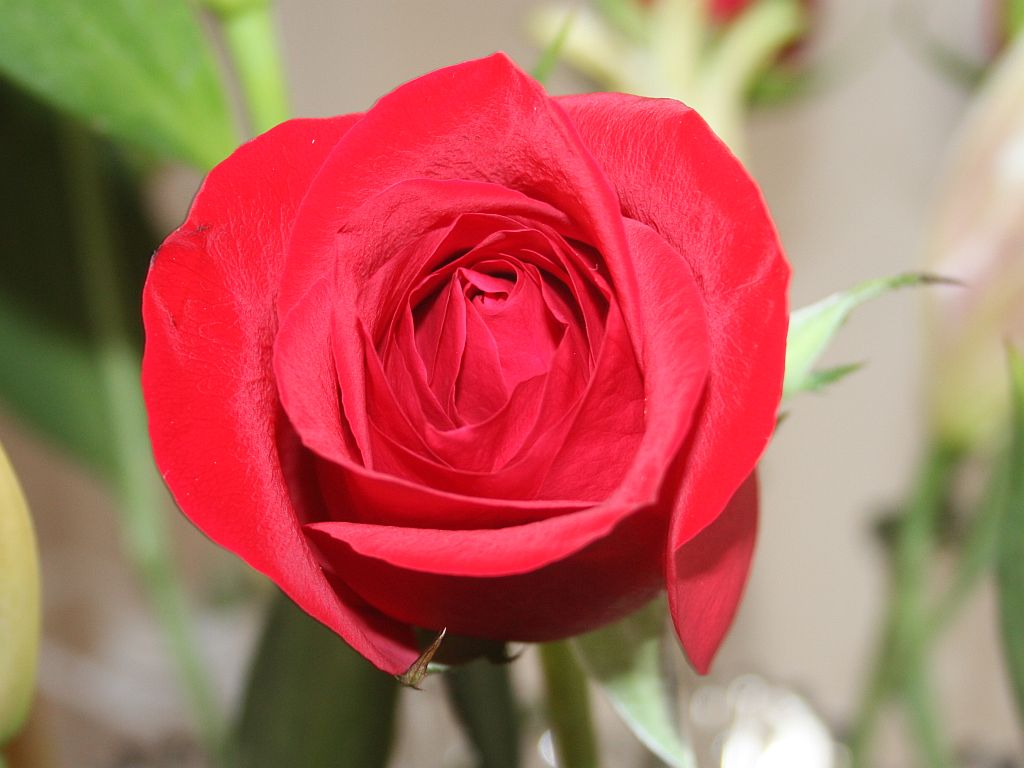I stood just inside the courtyard gate and snapped this photo of all the pretty red birds and Cleveland sage in bloom. It is a cloudy day with a chance of more monsoon clouds forecast for later. Last night, we had a dandy lightning and thunder show with some steady rain. Click on the image to enlarge.
Home & Garden
Red Birds Doing Great
There are three of these “Pride of Barbados” red bird of paradise shrubs in my courtyard . All of them have lots of these beautiful little flowers opening every day.
We have had some fairly heavy monsoon weather over the past week, but these little guys hold up very well in the wind and rain. Click on the image to enlarge.
Carrion Flower in the Desert
We brought one of our stapelia gigantea plants from California to the Arizona High Desert. I didn’t know if this south African succulent would like the climate here, but apparently it is OK. Damsel discovered the open flower this morning.
Last week we found that the stapelia had two flower pods. One pod fizzled but the other flower pod is now open.
From Dave’s Garden:
Stapelia gigantea — Interesting succulent, olive green and erect. Lots of branches. 4-sided spineless stems average up to 9 inches and about 1 inch thick. Cactus-like appearance.
Grown mostly for the starfish-shaped flower. Flowers are pale yellow with reddish stripes, covered with white hairs. Flower can average 8 to 12 inches across. It is said to look flesh-like, also reported to have a rotting meat odor, which attracts its main visitor, the fly, for pollinating
This plant which is usually grown in pots is known by several common names which include the following: starfish flower, Zulu-giant, carrion flower and giant toad. It is native to southern Africa and Mozambique.
By the way, Dave’s Garden is one valuable resource when trying to learn about plants and flowers.
A Cactus Wren
This cactus wren was perched on the crook that holds the seed block feeder. I took this photo from the RV drive just below the feeders. Click on the image to enlarge.
From Wikipedia:
The Cactus Wren is the largest North American wren, at 18–23 cm (7.1–9.1 in) long. Unlike the smaller wrens, the Cactus Wren is easily seen. It has the loud voice characteristic of wrens. The Cactus Wren is much less shy than most of the family. Its marked white eyestripe, brown head, barred wings and tail, and spotted tail feathers make it easy to identify. Like most birds in its genus, it has a slightly curved bill.
This is also the state bird of Arizona.


